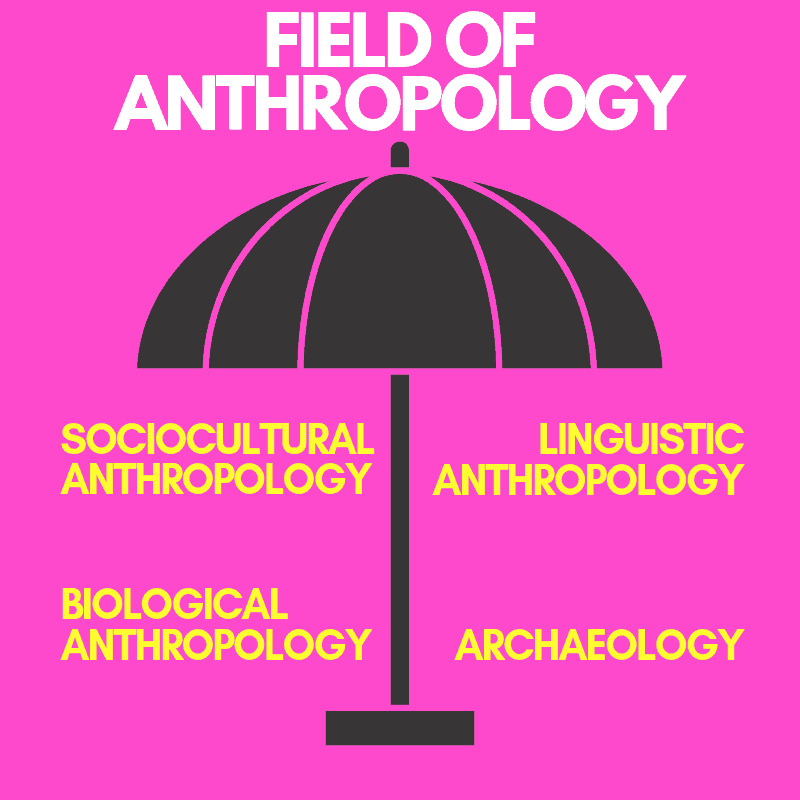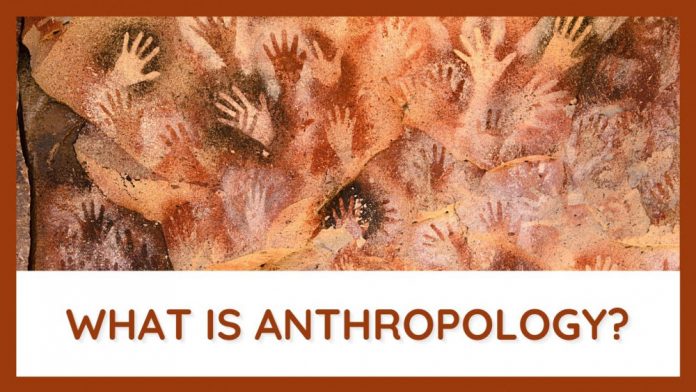Anthropology is a holistic social science discipline with many distinctive and interdisciplinary specializations.
In particular, anthropology is a social science field where people document human behavior over time. This work can be done by studying current cultures and people and their activities, or studying remains of past civilizations.
Fields of Anthropology:

The consensus is that there are at least five fields of anthropological research. They are physical (biological) anthropology, archaeological anthropology, cultural anthropology, linguistic anthropology, and applied anthropology.
- Physical anthropology includes the studies of primates and modern man alike.
- Archaeological anthropology investigates both prehistoric and historical excavation sites.
- Cultural anthropology discusses the sociocultural and socioeconomic systems of a cultural group.
- Linguistic anthropology documents (or in the case of some past languages, reconstructs) languages of cultural groups, their diffusions, and the sharing between dialects of words, phrases, etc.
- Applied anthropology aides companies and other interested parties in improving their products and production lines, taking into the account various cultural beliefs and viewpoints, and also, the interconnectivity of people within a given organization.
Specializations Within Anthropology:

By no means is this a mutually exclusive or comprehensive list, but some specializations within anthropology include:
- Paleoanthropology
- Paleodemography
- Forensic anthropology
- Bioarchaeology
- Archaeology of a particular geographic region and/or time period (i.e. Classical archaeology, Mesoamerican archaeology
- Archaeobotany
- Zooarchaeology
- Sociolinguistics
- Economic anthropology
Famous Anthropologists:

Once again, this list is not comprehensive, but there are many famous anthropologists including:
- Franz Boas
- Margaret Mead
- Marshall Sahlins
- Gregory Bateson
- Benjamin Whorf
- Edward Sapir
- Ruth Benedict
- William Labov
- Bronislaw Malinowski
- Lewis Henry Morgan
- Alfred Kroeber
- Marcel Mauss
- Claude Levi-Strauss
- Marvin Harris
- Clifford Geertz
What Types of Classes Do Anthropologists Take?
If going for training in anthropology, students traditionally take courses in anthropology, history, geography, liberal arts and humanities, statistics, and some may opt for classes in the natural sciences (like geology, environmental science, chemistry, biology), economics and international studies (including foreign languages).
Where Do Anthropologists Work?

This is truly a global field. Many anthropologists work abroad from where they were raised, and many work in various industries. Some are out in the field doing ethnographic research and/or archaeological excavation work. Others work in large corporations doing applied work or with governmental agencies. Some work for non-profit agencies and others work as advocates of change in policies.
Where Can An Anthropologist Or Student in Anthropology Network?
There are numerous listserves and discussion boards for anthropologists online. Likewise, numerous professional organizations serve the anthropological community in the United States and abroad. Some of those include:
- American Anthropological Association
- Society for Historical Archaeology
- Society for American Anthropology
- Archaeological Institute of America
- American Association of Physical Anthropologists
- Consortium of Practicing and Applied Anthropology Programs
- Society for Applied Anthropology
In closing, anthropology is a very diverse subject with specializations ranging from the natural sciences to the humanities, although most anthropological work falls within the social sciences. Anthropologists study past and current cultural groups and the interactions of their people, whether through communication or economic/group dynamics. This article only covers the surface of the discipline, but hopefully inspires readers to think beyond the likes of Indiana Jones!


















